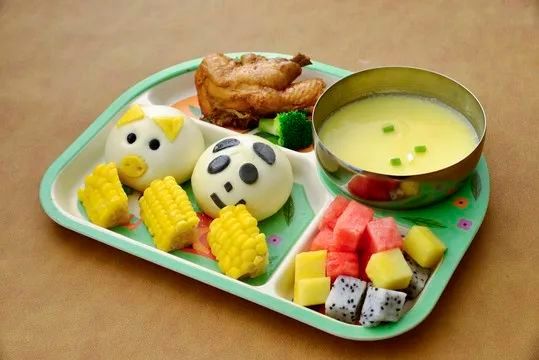
Health is the cornerstone of the future,
Especially for every child.
Choose a healthy lifestyle,
In order to have a healthy body to win the dream of the future.
Balanced Meals
< /section>

A good dietary pattern ensures adequate nutrition condition. The daily diet should include cereals, potatoes, vegetables and fruits, livestock, poultry, fish, eggs, milk, and soy foods. Cereals are the staple food in the diet and the main source of dietary energy, accounting for 50%-65% of the total energy. They are also an important source of B vitamins, minerals, protein and dietary fiber. Increased whole grain intake was associated with a 17% lower risk of weight gain in adolescents and adults over 13 years of age.
Eat more to maintain a healthy weight

Weight is an important indicator to evaluate human nutrition and health status, increase physical activity, maintain energy Balance intake and energy expenditure to maintain a healthy body weight, thereby reducing chronic adolescent overweight and obesity rates. At the same time, physical activity also helps to regulate mental balance, improve sleep and quality of life. Therefore, young students in school should be physically active every day.
Cultivate the good habit of various foods from an early age
< /section>

Vegetable water intake, whole grains, milk and legumes are key to good dietary patterns Food is also a good source of diet that affects the growth and development of children and adolescents. Milk and its products can increase bone mineral density in children and adolescents; yogurt can improve constipation and lactose intolerance. For preschool children, the intake of milk is higher than that of adults, and developing the eating habit of eating more vegetables and fruits, whole grains, milk and beans from an early age has long-term and far-reaching positive significance for ensuring balanced nutrition and health and preventing chronic diseases.
Less Salt, Less Oil, Sugar Control, Limit Alcohol
< /section>

Salt is the main seasoning in food cooking or food processing. Because young people are trained to taste light since childhood, recommended daily salt intake should not exceed 5g. In addition, the amount of cooking oil and animal fat should be reduced. The recommended daily intake of cooking oil is 25-30g.
Excessive intake of added sugars/sweetened beverages can increase the risk of dental caries, overweight and obesity. For teenagers, sugar-sweetened beverages are the main source of added sugar. It is recommended not to drink or drink less, and eat less high-sugar foods. Teens should not drink alcohol.